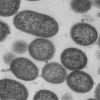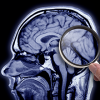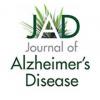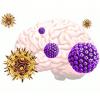11 October 2022
Blood Levels of ‘Free Range’ DNA May Signal Early Detection of Dementia and Frailty
In a long-term prospective study of more than 600 older participants, Johns Hopkins Medicine researchers say they have evidence that higher levels of cell-free DNA circulating in the blood may signal increased risk of chronic inflammation associated with early signs of frailty and dementia. The findings, published Oct. 11 in the Journal of Alzheimer’s Disease, could advance the search for relatively simple blood tests that detect risk of Alzheimer’s disease and other forms of cognitive decline.
26 September 2022
A nutritional supplement to support the management of Alzheimer’s disease
A new study, titled ‘Re-MIND’, from the Nutrition Research Centre Ireland (NRCI) at South East Technological University (SETU) finds that patients with Alzheimer’s disease who consume a nutritional supplement containing fish oil, carotenoids and vitamin E benefit from targeted nutritional intervention. The authors conclude that this supplement formulation should be considered in the overall management of Alzheimer’s disease.
26 September 2022
The Cable Study: Regular Physical Activity May Help Fend Off Alzheimer’s
Regular physical activity more than 2 times a week has a positive effect on AD by modulating the effect of preclinical amyloid – in 918 northern Han participants without dementia, according to the CABLE study by researchers at Fudan University and Qingdao University. Researcher investigated participants' physical activity habits and assessed their overall cognitive function and cerebrospinal fluid (CSF) biomarkers.
25 September 2022
UCLan Academics Make Stronger Connections Between Gum Disease and Alzheimer’s Disease
Researchers at the School of Dentistry, University of Central Lancashire were the first to report the link between gum disease and Alzheimer’s disease. Now two new studies from the same research group at the School of Dentistry demonstrate that progress is being made in making much stronger connections between gum disease in the mouth and deteriorating brain function.
15 September 2022
Risk Factor for Developing Alzheimer’s Disease Increases by 50–80% in Older Adults who Caught COVID-19
Older people who were infected with COVID-19 show a substantially higher risk – as much as 50% to 80% higher than a control group of developing Alzheimer’s disease within a year, according to a study of more than 6 million patients 65 and older. In a study published today in JAD, researchers report that people 65 and older who contracted COVID-19 were more prone to developing Alzheimer’s disease in the year following their COVID diagnosis. And the highest risk was observed in women at least 85 years old.
29 August 2022
Dementia and COVID-19: Determinants of Infection and Mortality
The elderly population has been hit with some of the worst effects of the COVID-19 pandemic, with a considerable mortality burden in particular among those who were living in long term care facilities. Several studies have identified dementia as an important risk factor for SARS-CoV2 infection and COVID-19 mortality. A recent study, published in JAD, using a population-based approach, has identified clinical and demographic characteristics affecting the risk of SARS-CoV-2 infection and severity among patients with dementia.
12 August 2022
Inverse Relationship Found Between Cancer Diagnosis and Alzheimer’s Disease
With increased age comes the increased risk to develop cancer or dementia. Both conditions share similar risk factors such as hypertension and diabetes. Many cancer patients experience cognitive impairment from cancer and its treatments with symptoms similar to dementia. But are these only similarities, or does a cancer diagnosis predispose patients to developing dementia? Prior literature indicates a lower risk of dementia after a cancer diagnosis and vice versa. However, studies of the long-term effects are lacking.
11 August 2022
Researchers Explore the “Dark Side” of Alzheimer’s Disease Revealing New Biomarkers
A special Mini-Forum published in the latest issue of JAD reports new scientific findings and insights into the pathophysiological mechanisms that induce brain overexcitability and its deleterious clinical effects in Alzheimer’s disease (AD) patients. Such brain overexcitability can manifest as subclinical epileptiform activities often associated with a faster AD progression
5 August 2022
Strawberries May Fend Off Alzheimer’s
Rush University researchers found that a bioactive compound found in strawberries called pelargonidin may be associated with less neurofibrillary tau tangles in the brain. Tau tangles are one of the hallmarks of Alzheimer’s disease, which is caused by abnormal changes with tau proteins that accumulate in the brain.
4 August 2022
Common Viruses May Be Triggering the Onset of Alzheimer’s Disease
Alzheimer’s disease (AD) can begin almost imperceptibly, often masquerading in the early months or years as forgetfulness that is common in older age. What causes the disease remains largely a mystery. But researchers at Tufts University and the University of Oxford, using a three-dimensional human tissue culture model mimicking the brain, have shown that varicella zoster virus, which commonly causes chickenpox and shingles, may activate herpes simplex, another common virus, to set in motion the early stages of AD.
















